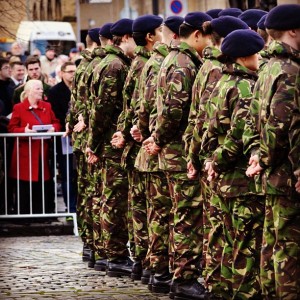
Merseyside armed service veterans are to be made a priority group for local housing.
The plans will make it easier for members of the armed forces to find housing when they return home from service. It will also apply to some widows and widowers as well as soldiers, sailors and airmen.
This week, a report before Liverpool City Council’s cabinet stated that the city wanted to “better recognise the commitment and sacrifice which members of the armed forces and their families offer in maintaining national security and ensures that they have access within a reasonable timescale to suitable housing on their return to civilian life.”
At present, service veterans have no priority when it comes to finding social housing. Currently, local veterans who have been living away from the region while on service do not automatically qualify as being a local resident.
The new scheme will mean that armed forces personnel will be exempt from the current criteria which people must meet for community housing in Merseyside.
Robin McGrath, spokesperson for SSAFA Merseyside, told JMU Journalism: “It is a big leap up the ladder, a big plus. This is a major benefit for members of the military, providing they apply within five years of leaving.”
Those who are currently serving in the regular forces or who were in service up to five years before applying for housing will benefit from the plans and will be exempt from the current rules.
Mr McGrath, said: “It is happening more and more that people coming out of the army cannot get housing. Nobody is saying that the army should have any better treatment over existing tenants, but what they will get is the same level of benefit as existing tenants. It’s a big jump from having nothing.”
Also, under the new scheme, husbands, wives or civil partners who have recently had to give up Ministry of Defence accommodation following the death of their loved one will be exempt, as long as the death was at least partly down to their service.
The plans will also give priority to those from the reserve forces who have suffered from “serious injury, illness or a disability which is wholly or partly attributable to their service.”

